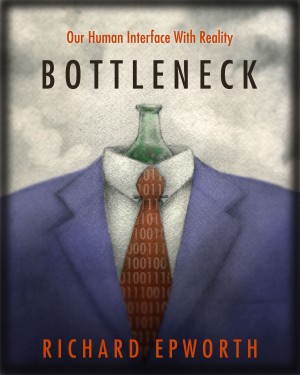Location: United Kingdom
Member Since:
March 01, 2015
Richard Epworth
Biography
Throughout my adult life I have always been obsessed by the technological and interpersonal limits of communication. At the University of Manchester I chose to build a free-space optical communication link for my final year project. Subsequently I was fortunate to enjoy nearly four decades as a key member of the unique team of British scientists who turned the dream of optical fibre communication into a reality. I began by providing electronics for Charles Kao, (who was later awarded the Nobel Prize in Physics for pioneering fibre communications), but soon became involved in the wider range of technologies required.
While inventing ways of squeezing ever higher information rates down tiny optical fibres, I became fascinated by the contrastingly tiny information rate of human communication – a limitation that I now call our Bottleneck. The implications seemed so incredible that I stepped aside to research just how our senses perceive the world around us using eye tracking technology. What I learned was so shocking that felt compelled to write about it and now "Bottleneck" is the result.
I am keen to share ideas and to build bridges, both between the isolated silos of scientific expertise, and between scientists and the interested public. With this second aim I helped establish a local Cafe Scientifique which provides regular talks and discussions on science-related topics. I have published many papers and articles, been granted more than 100 patents, and am a Fellow of the Institution of Engineering and Technology.
While inventing ways of squeezing ever higher information rates down tiny optical fibres, I became fascinated by the contrastingly tiny information rate of human communication – a limitation that I now call our Bottleneck. The implications seemed so incredible that I stepped aside to research just how our senses perceive the world around us using eye tracking technology. What I learned was so shocking that felt compelled to write about it and now "Bottleneck" is the result.
I am keen to share ideas and to build bridges, both between the isolated silos of scientific expertise, and between scientists and the interested public. With this second aim I helped establish a local Cafe Scientifique which provides regular talks and discussions on science-related topics. I have published many papers and articles, been granted more than 100 patents, and am a Fellow of the Institution of Engineering and Technology.
Where to find Richard Epworth online
Where to buy in print
Books
Bottleneck - Our human interface with reality. The disturbing and exciting implications of its true nature.
by Richard Epworth
Price:
$2.99 USD.
Words: 159,470.
Language:
English.
Published: March 19, 2015
.
Categories:
Nonfiction » Science & Nature » Cognitive Science, Nonfiction » Computers & Internet » Social aspects / human-computer interaction
Bottleneck is about the narrowness of Now. By daring to explore what information science can tell us about the process of learning. it reveals that we can absorb shockingly little truly new information from the present moment. The implication: the world we experience is almost entirely an imagined reality, based on our lifelong past experiences. Here at last is a science of prejudice.

